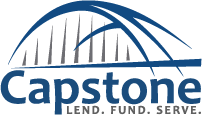How Long Does it Take to Get a Bridge / Hard Money Loan?
Hard money and bridge loans can often close faster than more traditional loans. Learn more about how long it takes and what may slow the process down.
Real estate financing provides funds for a wide range of activities, from buying a new home to developing raw land into a useful property. Timing can be critical in real estate. An opportunity may present itself that is only available for a limited time, so being able to get financing quickly can be important. The residential home purchasing process has some safeguards built in for buyers, giving them time to secure funding, but these are not necessarily available for real estate builders, developers, and investors. Hard money and bridge loans are often available much faster than more traditional forms of financing. Funding may be available in a matter of days rather than weeks or months. Read on to learn more about how long it takes to close on a hard money or bridge loan, what factors may affect the length of the process, and what borrowers might be able to do to speed things up.
Photo by Sora Shimazaki on Pexels
How long do hard money and bridge loans take to close?
Since hard money lenders are not bound by many of the regulations that can slow down the traditional financing process, they have a variety of policies and practices that may affect matters like the maximum amount they will lend and how fast it takes to close. How fast one lender can close might not represent a standard for the industry. Lenders generally work to close loans as quickly as possible in order to stay competitive.
At Capstone Capital Partners, our average closing time — from the initial application to closing — is 10 to 15 days. We have closed loans in as little as 2 to 3 days, but those cases are outliers.
What are typical closing speeds with other types of lenders?
Loans from traditional lenders usually take much longer to close than hard money and bridge loans. As with other types of loans, it is impossible to provide a definitive answer for how long a particular loan will take. There are simply too many variables to make a prediction without knowing about the specific situation. That said, it is possible to provide ballpark estimates for the amount of time different kinds of loans will take:
Conventional mortgage: 30 to 60 days
VA mortgage: 40 to 50 days
FHA mortgage: 50 to 60 days
Business loan: 30 to 60 days
SBA loan: 60 to 90 days
Personal loan: 30 days
What factors determine closing times?
Factors that can affect the length of the funding process may include the following:
The complexity of the project
The size of the property
The type of property, such as residential or commercial
Market conditions
Title problems affecting the property
The availability of an appraiser
Lack of communication between the borrower and the lender when the lender has questions
The process for hard money lenders has three main steps:
Pre-Approval: This step involves a quick review of basic information about the borrower, the property, and the borrower’s plan. It typically takes 1 to 2 days to complete.
Appraisal and Underwriting: This is typically the longest part of the process since it involves the lender’s obligation to perform due diligence. The lender will investigate the property’s value and review the terms and conditions of the loan. The more complex the project, the longer this step will take. It could take anywhere from several days to several weeks.
Closing: Once the lender has completed its underwriting process, all that remains is to assemble the necessary paperwork, get the required signatures, and fund the loan. This part of the process often goes quickly, and can often be completed in a few days.
The process for other types of lending involve the same steps, generally speaking. One of the main differences is in what lenders consider during underwriting. Conventional mortgage lenders, for example, pay close attention to a borrower’s creditworthiness. Hard money lenders place greater focus on the property and its value.
Photo by Anete Lusina on Pexels
What kind of loans or properties typically receive the maximum amount?
Many factors that can prolong the lending process are out of the borrower’s and lender’s control. A borrower can take steps, however, to help the process run as smoothly as possible:
Seek pre-approval early: The sooner a borrower gets pre-approved, the faster the lender can move on to the appraisal and underwriting stage.
Maintain detailed files: Having quick access to information and documents can speed up the underwriting process.
Respond promptly to lender questions and requests for documentation: The lender may reach out to the borrower with questions or to ask for additional paperwork. The process might not be able to continue
Learn more about hard money and bridge loans
The hard money lenders at Capstone Capital Partners provide various loan options to real estate investors in Austin and throughout Texas. We can evaluate your project and help you get the funding you need. Applying is easy, so contact us today to get started on a free pre-approval.



